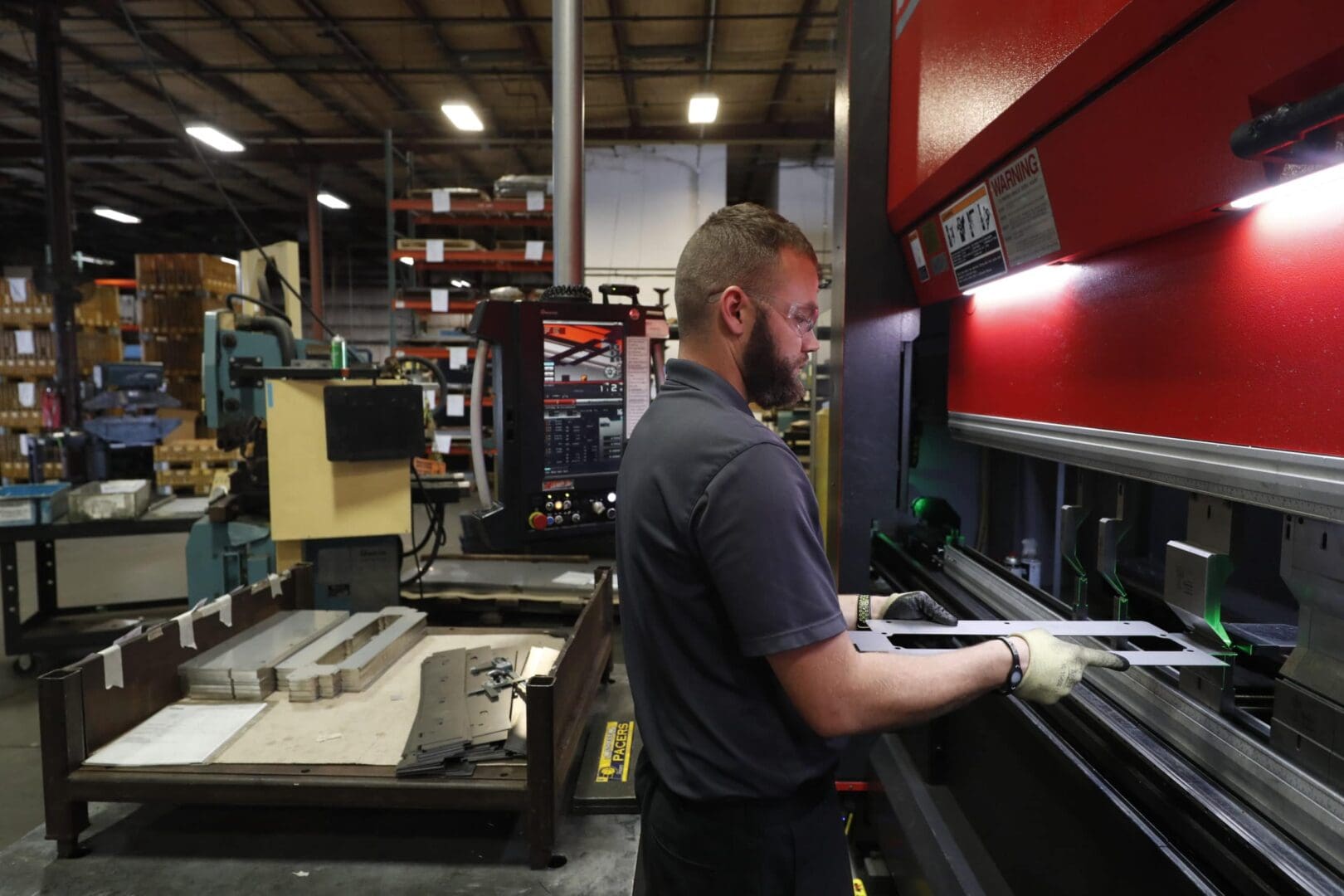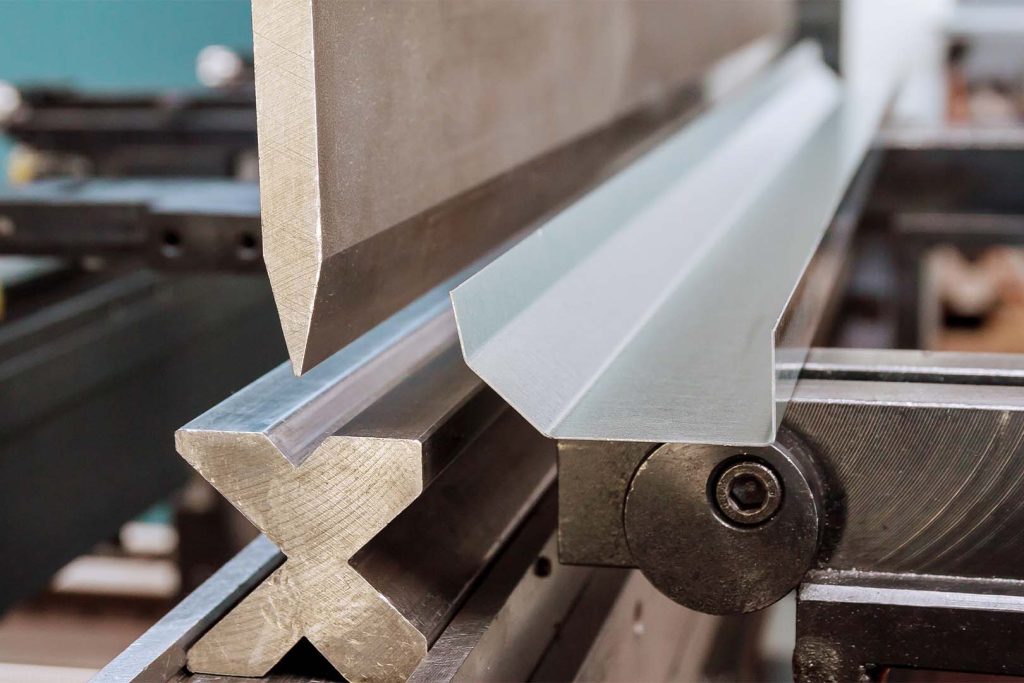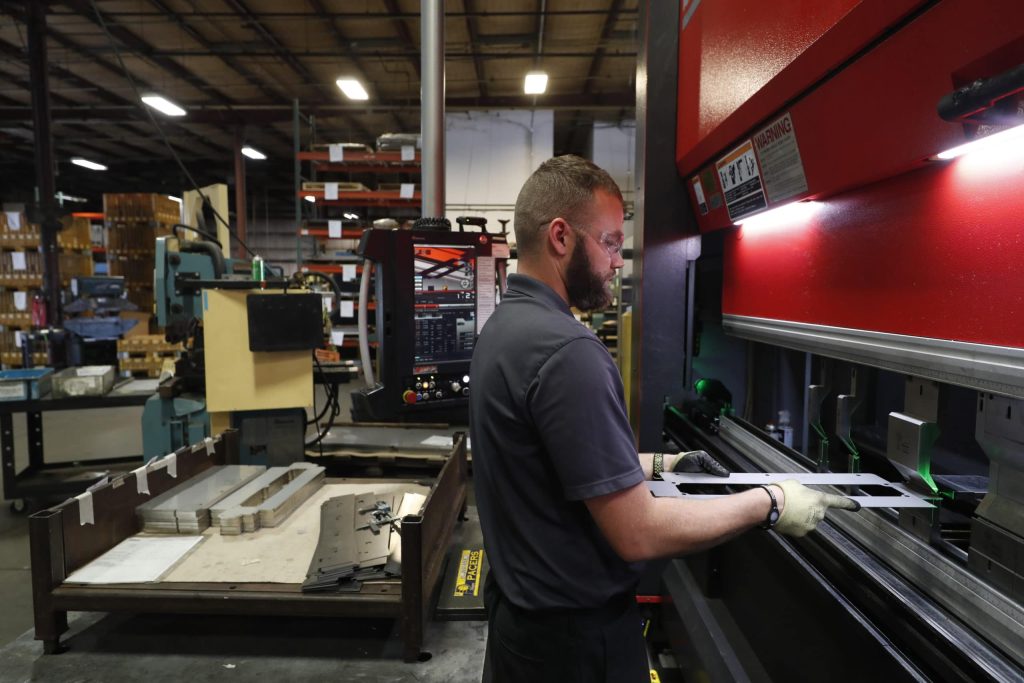Table of Contents
Sheet metal fabrication is a process of transforming flat sheets of metal into various shapes and sizes. It is a crucial manufacturing technique that is used in a wide range of industries, including construction, automotive, and aerospace. By using various techniques such as cutting, bending, and welding, sheet metal can be transformed into a variety of products, from simple brackets to complex machinery parts.
Sheet metal fabrication is a specialized skill that requires a high level of expertise and precision. The process involves working with thin sheets of metal, which can be challenging to manipulate. However, with the use of advanced technology and machinery, sheet metal fabricators can create custom products with incredible accuracy and speed. Whether you need a prototype or a large production run, sheet metal fabrication is an excellent choice for creating high-quality, durable products.
Understanding Sheet Metal Fabrication: A Comprehensive Guide
Sheet metal fabrication is a process that involves shaping flat sheets of metal into various forms and sizes. This process is widely used in the manufacturing industry to create a wide range of products, including car parts, electronics, household appliances, and industrial equipment. Sheet metal fabrication involves a combination of cutting, bending, and shaping techniques to create precise and complex shapes. In this article, we will explore the different aspects of sheet metal fabrication and its benefits.
What is Sheet Metal Fabrication?
Sheet metal fabrication is the process of transforming flat sheets of metal into finished products. The process involves a series of steps that include cutting, bending, and shaping the metal to achieve the desired form. Sheet metal is a versatile material that can be used to create different shapes and sizes, making it ideal for various industries. The most commonly used types of sheet metal include steel, aluminum, copper, and brass.
Cutting is the first step in sheet metal fabrication, and it involves separating the metal into the desired size and shape. This can be done using different techniques, including shearing, sawing, and punching. Bending is the process of shaping the metal into the desired form, and it involves using tools such as press brakes and rollers. Shaping involves the use of various techniques to create complex forms, including stamping, spinning, and deep drawing.
The Benefits of Sheet Metal Fabrication
Sheet metal fabrication offers numerous benefits, including:
- High Durability: Sheet metal is a durable material that can withstand harsh conditions, making it ideal for various applications.
- Flexibility: Sheet metal can be shaped into different forms and sizes, making it a versatile material for various industries.
- Cost-Effective: Sheet metal fabrication is a cost-effective process that can be used to create complex shapes and designs at a lower cost than other materials.
- Eco-Friendly: Sheet metal is a recyclable material, making it an eco-friendly option for creating products.
Sheet Metal Fabrication vs. Other Fabrication Methods
Sheet metal fabrication has several advantages over other fabrication methods, including:
| Sheet Metal Fabrication | Other Fabrication Methods |
|---|---|
| Cost-effective | Expensive |
| Quick turnaround time | Longer lead times |
| High precision and accuracy | Lower precision and accuracy |
| Wide range of materials | Limited materials |
The Applications of Sheet Metal Fabrication
Sheet metal fabrication has a wide range of applications across various industries, including:
- Automotive Industry: Sheet metal is widely used in the automotive industry to create car parts, including hoods, fenders, and doors.
- Electronics Industry: Sheet metal is used in the electronics industry to create various components, including enclosures, cases, and brackets.
- Construction Industry: Sheet metal is used in the construction industry to create roofing, siding, and gutters.
- Household Appliances: Sheet metal is used to create a wide range of household appliances, including refrigerators, stoves, and dishwashers.
- Industrial Equipment: Sheet metal is used to create various types of industrial equipment, including machinery components, enclosures, and panels.
The Future of Sheet Metal Fabrication
Sheet metal fabrication is a constantly evolving industry, with new technologies and techniques being developed to improve the process. The future of sheet metal fabrication is expected to involve more automation, with the use of robots and artificial intelligence to improve efficiency and accuracy. Additionally, new materials and alloys are being developed to improve the strength and durability of sheet metal products.
In conclusion, sheet metal fabrication is a versatile and cost-effective process that offers numerous benefits over other fabrication methods. With its wide range of applications and constant evolution, sheet metal fabrication is set to play a vital role in various industries for years to come.
Frequently Asked Questions
What is Sheet Metal Fabrication?
Sheet Metal Fabrication is a process of transforming flat sheets of metal into various shapes and sizes by cutting, bending and assembling. The final product can be used for various purposes, including building structures, machinery, and consumer products. The process starts with raw materials, often in the form of large rolls of metal, which are then cut to size and shaped using specialized tools and equipment.
In addition to cutting and shaping, the sheet metal may also be formed into complex curves and angles using various techniques, including stamping, rolling, and pressing. Once the metal is formed into the desired shape, it may be welded, riveted or joined in other ways to create the final product.
What are the benefits of Sheet Metal Fabrication?
Sheet Metal Fabrication is a popular manufacturing process because of its many benefits. One of the main advantages is that it allows for customization and flexibility in design. Sheet metal can be cut and shaped to meet the specific requirements of a project, allowing for unique and complex designs.
Another benefit of Sheet Metal Fabrication is its strength and durability. Metal is a strong and sturdy material that can withstand harsh environments and heavy loads. This makes it an ideal choice for building structures and machinery that require strength and durability.
Finally, Sheet Metal Fabrication is a cost-effective process that can help to save time and money. By using computer-aided design (CAD) software and automated machinery, the process can be completed quickly and efficiently, reducing the need for manual labor and minimizing waste.
Which Industries use Sheet Metal Fabrication?
Sheet Metal Fabrication is used across a wide range of industries, including construction, manufacturing, automotive, aerospace, and consumer products. In the construction industry, sheet metal is used to create roofing, siding, and structural components. In manufacturing, it is used to create machinery, equipment, and components for various products.
In the automotive industry, sheet metal is used to create vehicle bodies, frames, and other components. In the aerospace industry, it is used to create aircraft parts and components. In the consumer products industry, sheet metal is used to create appliances, electronics, and other household items.
What Materials are used in Sheet Metal Fabrication?
Sheet Metal Fabrication can be performed using a variety of materials, including steel, aluminum, copper, brass, and titanium. Each material has its own unique properties, making it suitable for different applications.
Steel is a popular choice for construction and manufacturing because of its strength and durability. Aluminum is lightweight and corrosion-resistant, making it ideal for use in the aerospace and automotive industries. Copper is an excellent conductor of electricity and is often used in electrical applications. Brass is a corrosion-resistant alloy that is often used in decorative applications. Finally, titanium is a strong and lightweight metal that is often used in aerospace and medical applications.
What are the Different Types of Sheet Metal Fabrication?
There are several different types of Sheet Metal Fabrication techniques, including cutting, bending, stamping, rolling, and welding. Cutting involves using tools to cut the metal into the desired shape and size. Bending involves using specialized equipment to bend the metal into the desired shape and angle.
Stamping involves using a mold or die to create a specific shape or pattern on the metal. Rolling involves using rollers to shape the metal into a curved or cylindrical shape. Finally, welding involves joining two or more pieces of metal together using heat and pressure. Each of these techniques has its own unique advantages and can be used to create a wide range of products and components.
In conclusion, sheet metal fabrication is a process of shaping, cutting and molding metal sheets into various forms and shapes. It involves a wide range of techniques, including punching, folding, welding, and bending, and is widely used in many industries, including automotive, construction, and aerospace.
Sheet metal fabrication is a highly precise and skilled process that requires expertise, experience, and specialized equipment. It involves the use of various metals, including steel, aluminum, copper, and brass, and can be used to create everything from simple brackets to complex structures.
Overall, sheet metal fabrication is a critical process that plays a vital role in many industries. It allows for the creation of high-quality, durable, and cost-effective metal products that can be used in a wide range of applications. Whether you’re looking to create a custom part or need a specific metal structure, sheet metal fabrication is a versatile and reliable solution that can meet your needs.
Request a quote today!
[contact-form-7 id="1578" title="Contact form"]
Please compress the file into a ZIP or RAR file before uploading. Alternatively, send through your RFQ by email.
enquires@unitymanufacture.com




